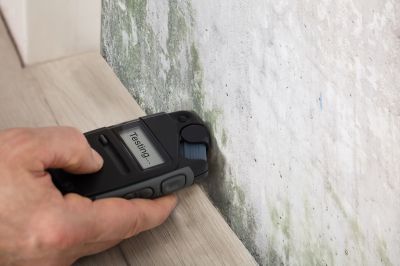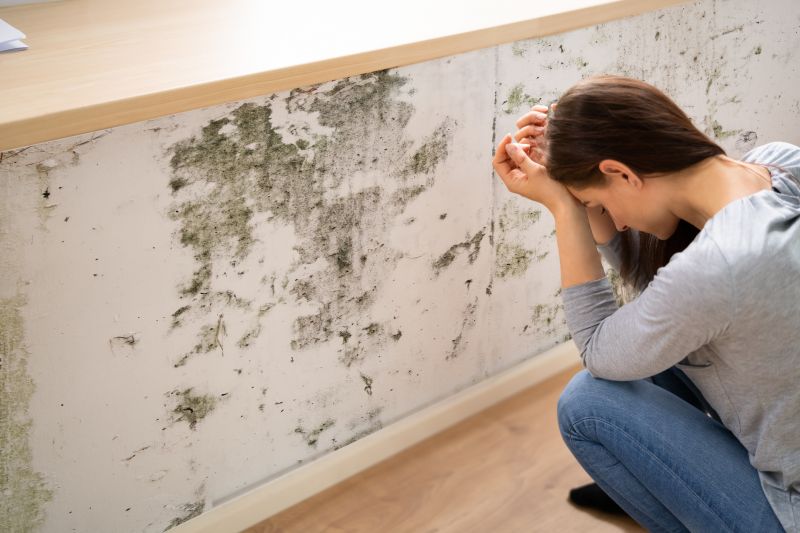Get Mold Testing in Denver, CO
Mold testing services for Denver-area property owners identify mold presence and help address issues in homes, basements, or commercial spaces with the help of experienced local contractors.
If you're considering a property project in Denver, CO, understanding the presence of mold and ensuring a healthy indoor environment can be essential steps in planning. Mold testing services help property owners identify potential issues early, which can be especially important in the region’s varying climate and building conditions. Exploring options for professional testing allows you to compare local contractors and find the right fit for your specific needs, giving you confidence in the safety and integrity of your property.
Property owners in Denver might seek mold testing to address concerns related to moisture, renovations, or ongoing maintenance. Whether you're preparing for a remodeling project, managing a rental property, or simply want peace of mind about indoor air quality, connecting with experienced service providers can provide valuable insights. Keep reading to discover how local contractors can assist with thorough mold assessments and help you make informed decisions about your property.
- Mold Testing - needed when visible mold growth or a musty odor is detected inside a home or business.
- Indoor Air Quality Assessment - recommended if residents experience unexplained respiratory issues or allergies.
- Post-Remediation Testing - essential after mold removal to ensure the environment is mold-free, especially in basements or bathrooms.
- New Construction Mold Inspection - useful during building projects in neighborhoods like Capitol Hill or Highlands Ranch to identify potential mold issues early.
- Water Damage Assessment - necessary following leaks or flooding to determine if mold has begun to develop in affected areas.



Mold testing services involve inspecting indoor environments to identify the presence of mold spores and determine their types and concentrations. Typically, trained service providers use specialized equipment to collect air and surface samples, which are then analyzed to detect mold growth that may not be visible to the naked eye. This process helps homeowners understand whether mold is present, how extensive the problem might be, and what specific types of mold are involved. Conducting mold testing can be an important step in diagnosing issues that could be affecting indoor air quality or causing visible mold growth on walls, ceilings, or other surfaces.
These services are especially useful in resolving problems related to persistent musty odors, allergy-like symptoms, or unexplained respiratory irritation. Mold can develop as a result of water leaks, high humidity, or past flooding, and if left unchecked, it may lead to structural damage or health concerns. Mold testing helps identify hidden mold growth behind walls, under flooring, or in other less accessible areas. By pinpointing the source and extent of mold, homeowners can make informed decisions about necessary repairs or remediation efforts to improve indoor conditions.
Property types that typically utilize mold testing include residential homes, especially those that have experienced water damage or have visible mold issues. It is also common for apartment buildings, condominiums, and multi-family dwellings to undergo testing when mold concerns arise. Additionally, commercial properties such as offices, retail spaces, and warehouses may require mold assessments to ensure safe and healthy environments for occupants. In any setting where moisture problems or mold growth are suspected, professional mold testing can provide clarity and guidance on the appropriate next steps.
Homeowners should consider mold testing services when they notice signs like persistent odors, visible mold patches, or health symptoms that improve when away from the property. It is also recommended after water-related incidents such as leaks, flooding, or high humidity periods. Engaging with experienced local contractors ensures that the testing process is thorough and accurate, providing reliable results to guide remediation efforts. Proper testing can help detect mold early, prevent further damage, and contribute to maintaining a safe, comfortable living environment.
The overview below groups typical Mold Testing projects into broad ranges so you can see how smaller, mid-sized, and larger jobs often compare in Denver, CO.
In many markets, a large share of routine jobs stays in the lower and middle ranges, while only a smaller percentage of projects moves into the highest bands when the work is more complex or site conditions are harder than average.
Basic Mold Testing - typical costs range from $250-$600 for many smaller or routine testing jobs. Most residential projects fall within this range, covering standard inspections of accessible areas.
Standard Inspection - larger homes or more comprehensive testing generally cost between $600-$1,200. Many local contractors offer services in this range for thorough assessments of multiple areas.
Specialized or Complex Projects - larger, more involved mold testing, such as for extensive infestations or difficult-to-access spaces, can reach $1,200-$3,000 or more. Fewer projects fall into this high-cost tier, but they are necessary for detailed analysis.
Full Mold Inspection & Testing - extensive evaluations, including lab analysis, typically cost $1,000-$5,000+. Many projects are in the middle of this range, with higher costs reserved for complex or multi-unit inspections.
Actual totals will depend on details like access to the work area, the scope of the project, and the materials selected, so use these as general starting points rather than exact figures.
Indoor Air Quality Testing - professionals assess overall air quality, identifying mold spores and other contaminants that can affect health and building integrity.
Home Inspection Services - inspectors evaluate properties for moisture issues and hidden mold growth as part of comprehensive building assessments.
Moisture and Leak Detection - specialists locate sources of excess moisture that can lead to mold development within walls, ceilings, and floors.
HVAC System Cleaning - service providers clean and maintain heating, ventilation, and air conditioning systems to prevent mold buildup and improve airflow.
Water Damage Restoration - contractors handle water removal and drying processes that reduce mold risks after flooding or leaks.
Asbestos and Hazardous Material Removal - experts safely remove materials that may contribute to mold growth or pose health hazards during property remediation.

When evaluating potential service providers for mold testing in Denver and nearby areas, it’s important to consider their experience with similar projects. Homeowners should inquire whether the local contractors have a track record of handling mold testing in residential settings comparable to their own. An experienced professional is more likely to understand the specific challenges that can arise in homes of different ages, sizes, or construction types, helping ensure that the testing is thorough and accurate.
Clear written expectations are also essential when comparing local options. Homeowners should seek service providers who can provide detailed descriptions of what the testing process involves, what the results will include, and any next steps that may be necessary. Having this information in writing helps establish a mutual understanding of the scope of work and reduces the chances of surprises or misunderstandings later on.
Reputable references and strong communication are key indicators of reliable local contractors. Homeowners might ask for references or reviews from previous clients to gauge the quality of the service. Additionally, service providers who are responsive, transparent, and willing to answer questions throughout the process can foster confidence and make the experience smoother. Remember, these professionals are there to handle the testing, not to perform the work themselves, so it’s important to find trusted local options that can connect homeowners with qualified experts suited to their specific needs.
Property owners in Denver, CO use Mold Testing services for practical projects around their homes and businesses. This guide focuses on everyday jobs and straightforward project options.


Property owners in Denver, CO might seek mold testing services when they notice visible mold growth or a persistent musty odor inside their homes or businesses. These situations often arise after water leaks, flooding, or high humidity levels common in the area, prompting residents to ensure indoor air quality and prevent potential health issues. Additionally, individuals planning to buy or sell a property may opt for mold testing to assess any hidden mold concerns that could impact property value or safety.
In other cases, local contractors may be contacted when homeowners experience allergy symptoms or respiratory issues that seem to worsen indoors. Mold can develop in hidden areas like basements, attics, or behind walls, especially in older Denver homes with previous water damage. Property owners seeking peace of mind or wanting to address potential mold problems early can connect with service providers experienced in testing and identifying mold presence throughout the local area.
What is mold testing? Mold testing involves inspecting indoor environments to detect the presence of mold spores and identify the types of mold present, helping homeowners understand potential health risks.
Why should I consider mold testing? Mold testing can help identify hidden mold growth that may not be visible, providing valuable information for addressing indoor air quality concerns and preventing damage.
How do local contractors perform mold testing? Certified service providers use specialized equipment to collect air and surface samples, which are then analyzed to determine mold levels and types within the property.
What types of mold are typically tested for? Common molds tested for include Aspergillus, Stachybotrys, Penicillium, and Cladosporium, among others, depending on the situation.
Is mold testing necessary if I see visible mold? Visible mold indicates a problem, but testing can help determine the extent of hidden mold and inform the most effective remediation approach.
Identify hidden mold issues in your home - Mold testing services can reveal unseen mold growth behind walls or under flooring, helping property owners address problems early.
Ensure indoor air quality in your living space - Testing can detect mold spores that may affect air quality, allowing homeowners to take steps to improve their environment.
Assess mold presence after water damage or flooding - Local contractors can perform tests to determine if mold has developed following leaks or flooding incidents.
Verify safety before remodeling or renovation projects - Mold testing can identify potential hazards before construction begins, ensuring a safe environment for workers and occupants.

If you are thinking about Mold Testing for a property in Denver, CO, this guide is meant to help you understand the work, the typical project types, and how different options might fit your plans.
When you are ready, you can use the quote form on this page to share a few details about your project. From there, local pros can review the basics and respond with options that match what you have in mind.



